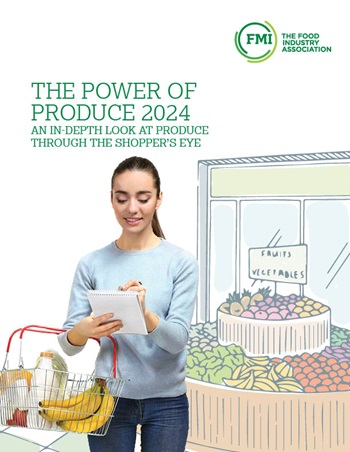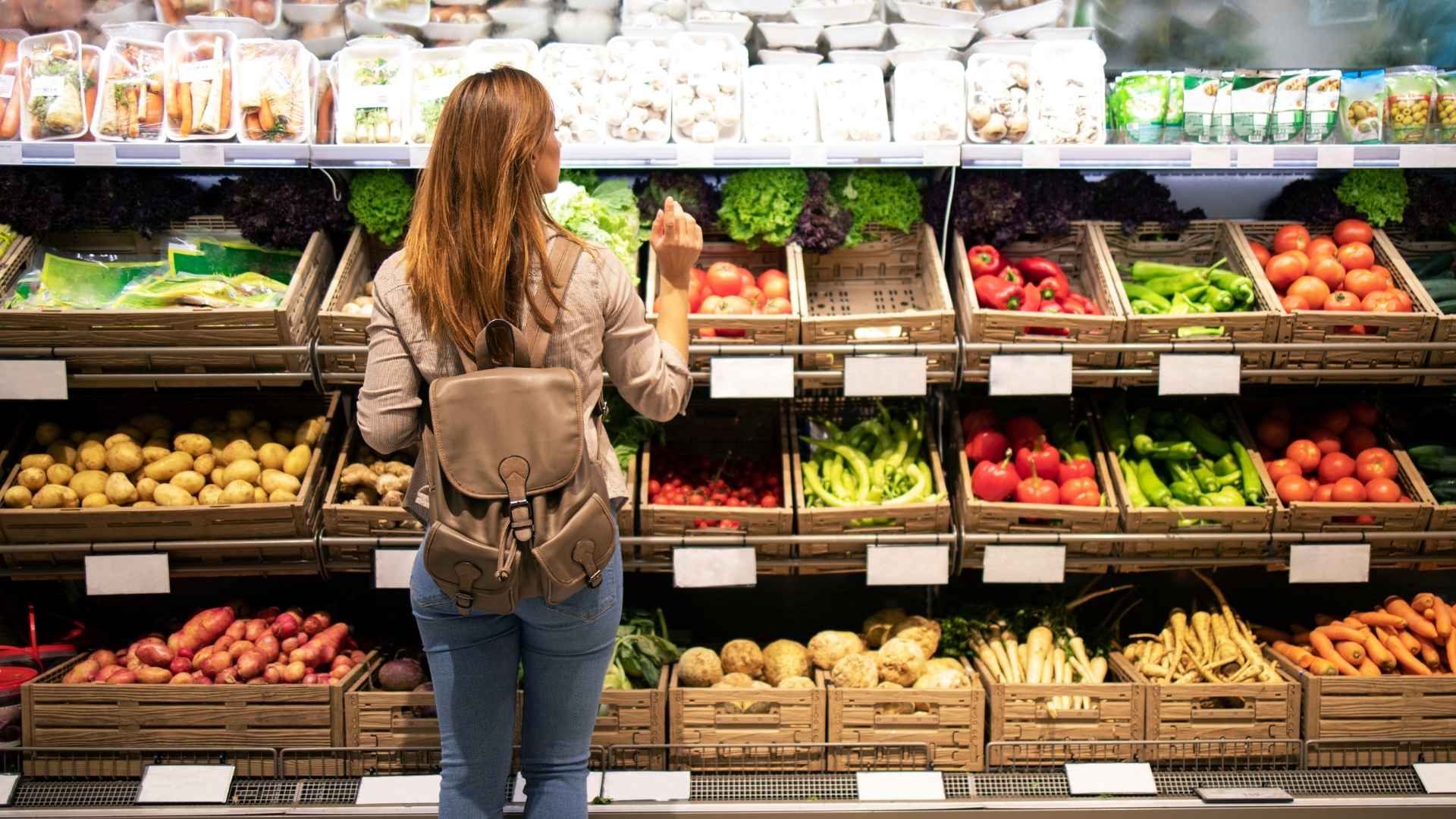By: Rick Stein, Vice President, Fresh Foods, FMI

In a world where health and well-being reign supreme, the importance of fresh produce in our daily lives cannot be overstated. As a long-time champion of the fresh foods industry, I've been privy to invaluable insights regarding the pivotal role that produce plays in nourishing our bodies, fostering community, and championing global sustainability initiatives. Enter the Power of Produce report—our annual touch-base with all things fruits and vegetables, shedding light on the crucial factors influencing consumer decisions in the grocery store.
Price, Quality, and Appearance: The Triple Threat
It's no secret that price often drives consumer decisions when it comes to selecting where to shop. However, when it comes down to what ends up in their baskets, quality and appearance take center stage. Consumers are increasingly discerning, opting for produce that not only fits their budget but also boasts superior quality and eye-catching aesthetics. Food retailers must strike a delicate balance between affordability and premium offerings to cater to the diverse needs and preferences of their clientele.
Embracing Produce Uses: Snacking, Breakfast, Dessert
The modern consumer is embracing a more holistic approach to nutrition, incorporating fresh produce into a myriad of meal occasions beyond just lunch and dinner. From vibrant vegetable snacks to refreshing fruit-based breakfasts and guilt-free desserts, the opportunities to elevate produce consumption are endless. According to the Power of Produce, a staggering 51% of produce shoppers are eager for innovative ideas on incorporating fresh fruits and vegetables into their snacking routines. By capitalizing on these emerging trends, food retailers can not only drive sales but also foster healthier eating habits among their customers.
Tackling Food Waste Concerns Head-On
The report reveals that while consumers are shopping more frequently, they're purchasing less produce by volume due to apprehensions about spoilage and waste. By implementing strategies such as providing smaller portion options, optimizing production planning, and offering sustainability education, retailers can empower shoppers to make informed choices while minimizing food waste. Integrating considerations of functionality and environmental impact into packaging decisions can further bolster sustainability efforts and resonate with eco-conscious consumers.
Educating Consumers: The Key to Increased Consumption
Knowledge is power, especially when it comes to making healthier food choices. Retailers have a unique opportunity to educate consumers about the nutritional benefits of fresh produce, empowering them to make informed decisions that align with their health and well-being goals. By providing nutrition education, offering guidance on portion sizes and showcasing practical tips for seamlessly integrating produce into all meal occasions, retailers can foster a deeper appreciation for fresh fruits and vegetables while driving increased consumption.


 Industry Topics address your specific area of expertise with resources, reports, events and more.
Industry Topics address your specific area of expertise with resources, reports, events and more.
 Our Research covers consumer behavior and retail operation benchmarks so you can make informed business decisions.
Our Research covers consumer behavior and retail operation benchmarks so you can make informed business decisions.
 Events and Education including online and in-person help you advance your food retail career.
Events and Education including online and in-person help you advance your food retail career.
 Food Safety training, resources and guidance that help you create a company food safety culture.
Food Safety training, resources and guidance that help you create a company food safety culture.
 Government Affairs work — federal and state — on the latest food industry policy, regulatory and legislative issues.
Government Affairs work — federal and state — on the latest food industry policy, regulatory and legislative issues.
 Get Involved. From industry awards to newsletters and committees, these resources help you take advantage of your membership.
Get Involved. From industry awards to newsletters and committees, these resources help you take advantage of your membership.
 Best practices, guidance documents, infographics, signage and more for the food industry on the COVID-19 pandemic.
Best practices, guidance documents, infographics, signage and more for the food industry on the COVID-19 pandemic.
